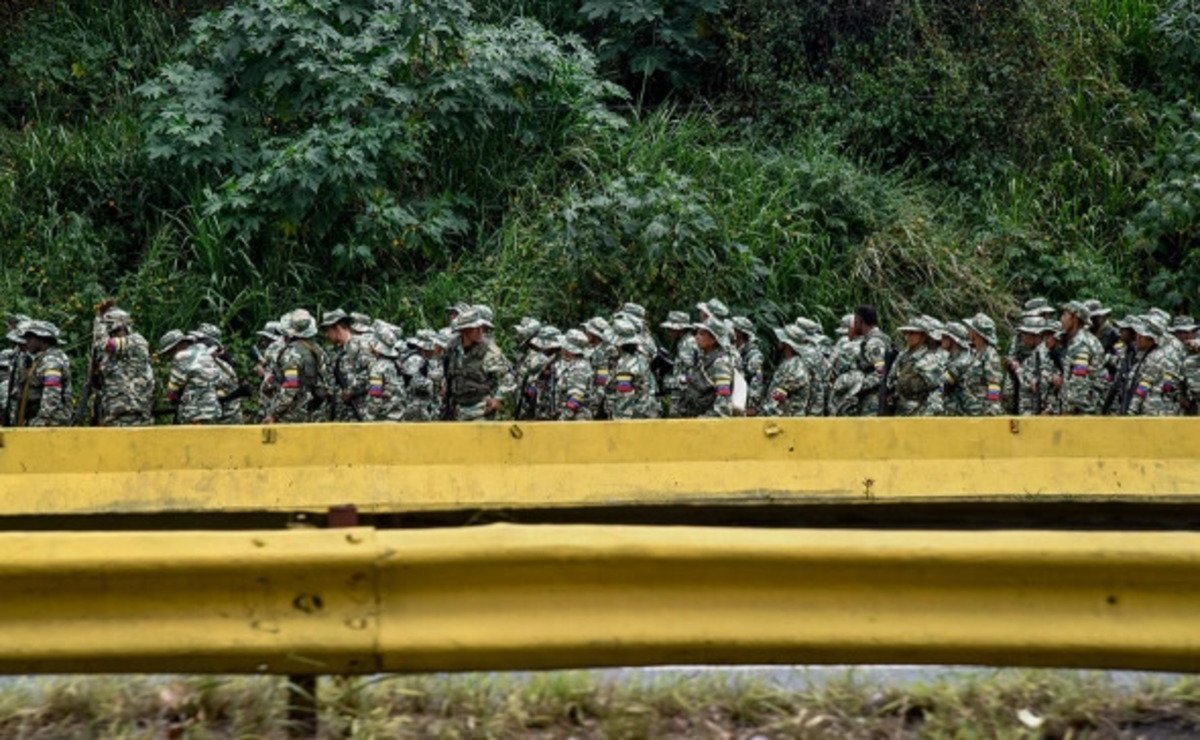A new conflict zone is emerging in the world, concerning the territorial dispute between Venezuela and Guyana over rich oil resources.

Venezuela's Minister of Defense, Vladimir Padrino Lopez, expressed confidence that the Essequibo territory, belonging to Guyana, will be returned, as reported by Sarbaz.kz. He wrote this in his social media posts.
His statement followed the announcement by the Guyanese government of joint aviation exercises with the U.S. Southern Command on Thursday.
In his message, the minister highlighted that this provocation by Guyana is another step in the wrong direction.
"We warn that this will not deter us from reclaiming Essequibo," he wrote.
It's important to note that Essequibo represents two-thirds of Guyana's territory, historically claimed by Venezuela. The dispute over this territory has been ongoing between the two states for almost a hundred years. The recent crisis escalated in 2015 after the discovery of oil and gas fields in Guyanese territorial waters, over which Venezuela also expressed claims.
The decision by the Guyanese authorities in September of this year to grant drilling licenses to six foreign oil companies, including ExxonMobil, has become a new reason for escalation.
In response, Venezuela held a national referendum on Sunday, where authorities reported full support from the population.
Faced with new threats that seem very real, Guyana plans to bolster security measures along its border with Venezuela and engage the U.S. military to protect its territory.
An emergency UN meeting is expected to take place on Friday to address this territorial issue. However, an immediate resolution to the problem is not anticipated.
Public figure and political scientist Daniyar Ashimbayev, in conversation with Sarbaz.kz, noted that he believes there are no crisis-free regions left in the world today. Venezuela, being one of the most financially unstable countries globally, is seeking a path to stabilize its economic situation. According to the political scientist, one potential way is the annexation of neighboring territory rich in vast oil resources.
"It's important to understand that due to conflicts in Ukraine and the Middle East, as well as ensuring the security of Taiwan, Japan, and South Korea, American military resources are already stretched thin. Venezuela, on the other hand, hardly considers the opinion of the global community, particularly that of the USA. Therefore, the American administration is forced to work at the limit of its capabilities, and if there was once a concept that 'the USA can engage in 2.5 wars,' today the resources are no longer sufficient," noted the political scientist.
Since the end of the Cold War, there has been a significant reduction in military spending in the USA. The crises of the 90s and the 2000s also led to decreased competition among once-strong design bureaus. As a result, many technological projects that the USA could execute in 2-3 years now require much more time.
"Despite the general antipathy towards the USA in the region, many Latin American countries happily accept their assistance, thus strengthening their influence. Escalation of this territorial conflict creates additional strain on the American military-industrial complex. Moreover, Iran or North Korea, the countries that undoubtedly see the American resource crisis, have not fully engaged in the 'game.' These are the countries whose perspectives are important in the Venezuelan conflict," said Daniyar Ashimbayev.
In the opinion of the political scientist, today the concept of a "unipolar world" is undergoing serious tests primarily due to resource and technological limitations. The USA may simply not have enough strength to significantly intervene in this conflict, especially since most countries not supporting US foreign policy are major oil exporters, a market crucial for the economic security of the states themselves.
"Today, Washington finds itself in a challenging position when the 'unipolar world' is showing cracks. Consensus is only observed regarding initiatives supporting Israel, although, on the other hand, as the IDF's ground operation in the Gaza Strip progresses, global anti-Israel sentiments are on the rise. Therefore, considering all these factors, I wouldn't want to work in the American leadership, dealing with a pile of foreign policy problems," said Daniyar Ashimbayev to Sarbaz.kz.
Undoubtedly, the United States would like to resolve this issue as quickly as possible, but serious limitations to American influence on Venezuela hinder this. Furthermore, in recent decades, the global order has significantly changed, altering the world's perception of the USA in general.
"Venezuela is playing a dangerous game. It's evident that Venezuela has a more powerful military compared to small Guyana. It's a different story if the USA gets involved, as they can find new resources or redirect existing ones from other regions. It's also important to consider the positions of other Latin American countries since the peculiarities of this region are such that touching one border sets the entire continent in motion," emphasized Daniyar Ashimbayev.
World states, like domino pieces, play a global political game. The fall of one link inevitably leads to a host of consequences. Therefore, involving major powers like the USA in the conflict can result in various consequences that no one can predict. According to our interviewee, even though the United States is experiencing resource limitations, they still remain a potential, albeit not obvious, participant in the conflict between Venezuela and Guyana.